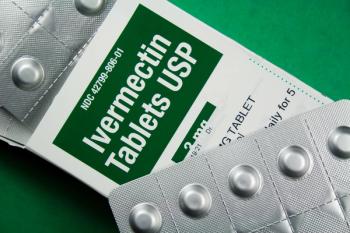
Ivermectin shows promise in reducing malaria cases, enhancing vector control, and highlighting pharmacists' vital roles in public health strategies.

Ivermectin shows promise in reducing malaria cases, enhancing vector control, and highlighting pharmacists' vital roles in public health strategies.

Kirk Knowlton, MD, discusses findings from the V-INCEPTION trial evaluating inclisiran for low-density lipoprotein cholesterol (LDL-C) management after myocardial infarction, highlighting its real-world effectiveness, tolerability, and potential for integration into pharmacist-led lipid care pathways.

Sanofi's SAR446523 receives orphan drug designation for relapsed/refractory multiple myeloma, enhancing treatment options and patient outcomes.

New research reveals that GLP-1 receptor agonists like semaglutide may significantly reduce stroke impacts and improve recovery outcomes.

RSV hospitalization in older adults links to increased cardiovascular events, highlighting the need for vigilant monitoring and vaccination strategies.

By targeting aldosterone in a 2-dose regimen, baxdrostat effectively lowers mean seated systolic blood pressure in patients with difficult-to-treat hypertension.

Pirtobrutinib shows promising results in a head-to-head trial against ibrutinib for chronic lymphocytic leukemia (CLL)/small lymphocytic leukemia (SLL).

A recent study reveals Mvasi's comparable safety profile to Avastin for retinal diseases, highlighting the need for on-label biosimilars in ophthalmology.

Decentralized pharmacists play a critical role in reducing medication errors by collaborating in real time with physicians and nurses to enhance patient safety across care settings.


Both vaccine and nonvaccine serotypes were identified as being resistant to critical antimicrobial treatments for pneumococcal disease.

Hormonal contraceptives present a nuanced risk-benefit profile, slightly increasing breast and cervical cancer risk while significantly reducing ovarian and endometrial cancer rates.

Understanding the regulatory landscape can maximize pharmacists' roles while ensuring legal compliance.

Pharmacists guide pregnant women in balancing depression treatment with SSRI safety, addressing risks of untreated depression and neonatal adaptation syndrome.
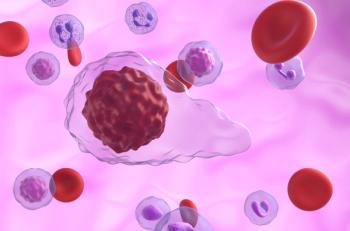
Luspatercept shows promise in reducing transfusion dependence for myelofibrosis-associated anemia, despite not meeting primary trial end points.

Kevin Chen, PharmD, MS, BCOP, CPP; and Amanda Cass, PharmD, BCPS, BCOP, share key insights about ROS1, non-small cell lung cancer, and the newly approved drug taletrectinib.
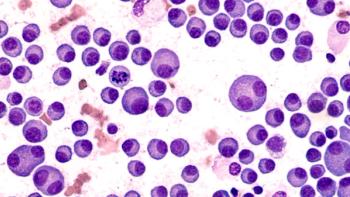
Sundar Jagannath, MD, MBBS, discusses how linvoseltamab’s streamlined step-up dosing and REMS program support broader use in community settings and improved tolerability for older patients.

Astegolimab shows promise in reducing chronic obstructive pulmonary disease (COPD) exacerbations, offering hope for improved management of this debilitating lung disease.

Hospitalized older adults infected with SARS-CoV-2 had faster declines in executive function and memory compared with both uninfected and nonhospitalized infected patients.

The American Heart Association recommends an automatic, cuff-style upper arm monitor.

Pharmacists share their institution's individual, unique approaches to medication safety.
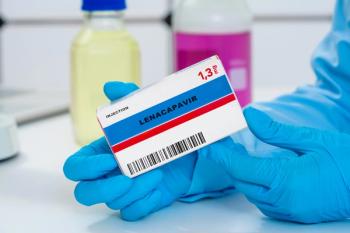
Namrata Shah, MD, highlights lenacapavir’s ease of use, long-acting protection, and the vital role pharmacists play in expanding equitable HIV prevention access.

Emerging trial results reveal gedatolisib significantly enhances progression-free survival (PFS) in advanced HR+/HER2- breast cancer.

Pharmacist share actionable insights for EMR utilization and facilitation of medication safety practices.

Experts discuss groundbreaking Hot Line trials at the European Society of Cardiology Congress 2025, offering insights into the latest cardiovascular research.
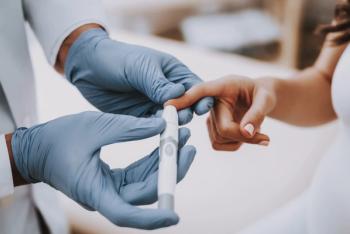
A new study reveals that individuals with type 2 diabetes (T2D) face significant financial hardships, impacting their health and medication adherence.

The treatment proved efficacy across all 3 key markers of C3 glomerulopathy (C3G) and primary immune complex membranoproliferative glomerulonephritis (IC-MPGN).
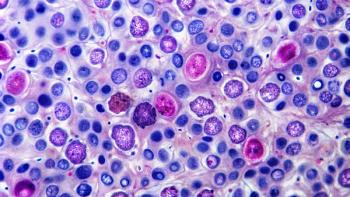
Julio C. Chavez, MD, MS, discusses the distinct pharmacologic profile, clinical activity, and outpatient potential of golcadomide plus rituximab in relapsed/refractory follicular lymphoma, highlighting its selective cereblon modulation, fixed-duration dosing, and promising efficacy in heavily pretreated patients.

FDA places clinical hold on Sarepta's Elevidys gene therapy after safety concerns, but ambulatory patients regain access amid ongoing investigations.

Tildrakizumab 100 mg shows significant efficacy in treating psoriatic arthritis, achieving key clinical trial end points and offering hope for patients.